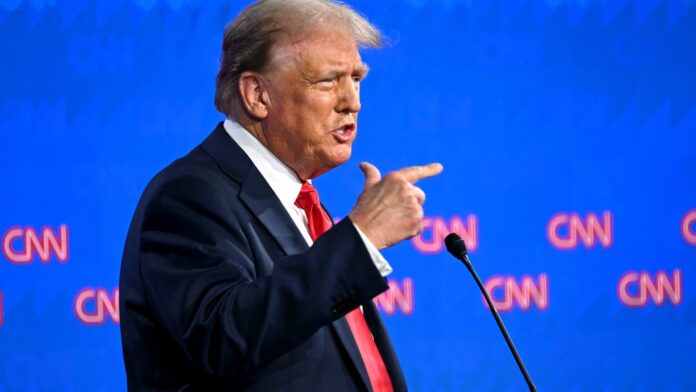Key Falsehoods or Claims: The article does not specifically mention any falsehoods or conspiracy theories by Donald Trump in this particular instance.
Source: The South China Morning Post is a Hong Kong-based newspaper and website that is considered to have a neutral stance. However, it is important to note that the outlet’s ownership by Alibaba Group, a Chinese company, may influence its coverage of U.S. politics and diplomacy.
Analysis of Impact: The article does not provide specific polling data or public statements regarding the impact of falsehoods or conspiracy theories on public opinion. However, it does discuss how Trump’s diplomatic strategies, including his confrontational approach, have received mixed reactions from the public and international community. The article suggests that Trump’s behavior in the Oval Office reflects an alarming turn in U.S. diplomacy, which may contribute to a sense of instability and unpredictability in international relations.
Threat to Democracy: The article does not explicitly connect the discussed diplomatic strategies to threats to democracy. However, the broader implications of Trump’s approach to diplomacy, if characterized by falsehoods or conspiracy theories, can erode trust in government and institutions, as well as undermine the U.S.’s credibility in global affairs.
Hypothetical Reactions: If Trump’s diplomatic approach is driven by lies or conspiracy theories, it could lead to both domestic and international skepticism and distrust. This could result in strained diplomatic relations, increased polarization within the U.S., and potential negative impacts on international cooperation.
Further Reading: For further reading on the influence of media and misinformation in politics, reputable sources such as Pew Research Center, Brookings Institution, and Harvard Shorenstein Center on Media, Politics and Public Policy offer valuable insights into the impact of political media on public opinion and democracy. Additionally, studies on misinformation and disinformation, such as those conducted by the RAND Corporation or the Stanford Internet Observatory, can provide in-depth analyses of the spread and impact of false information in political contexts.
Source link
Redirect URL
